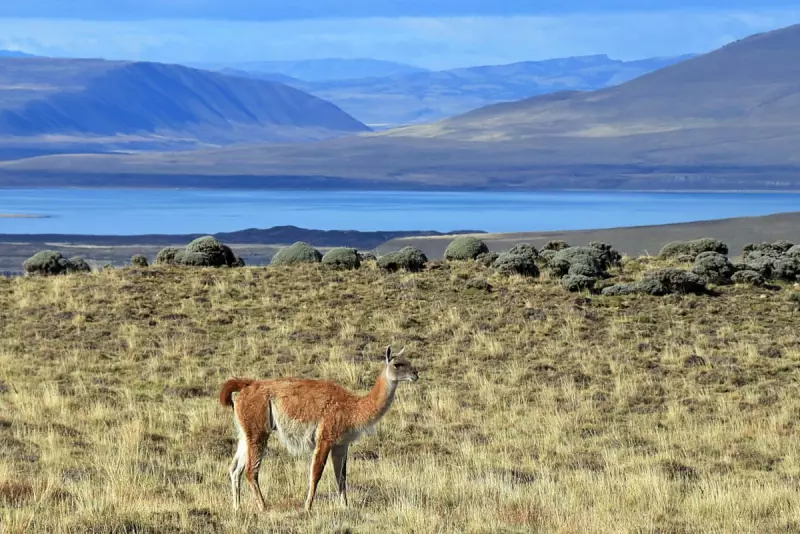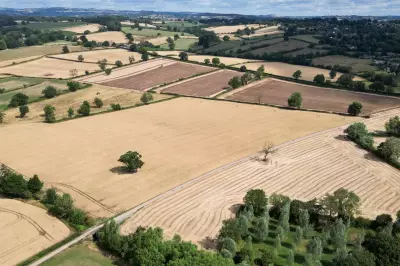
In the remote wilderness of Chilean Patagonia, a dramatic confrontation is unfolding between global climate ambitions and the rights of Indigenous communities. International energy corporations are racing to establish massive green hydrogen projects, promising a cleaner future while creating immediate environmental threats for local inhabitants.
The Green Gold Rush in Southern Chile
Chile's government has aggressively positioned the Magallanes region as a future global hub for green hydrogen production. This ambitious plan leverages the area's exceptional wind resources to power electrolysis plants that split water into hydrogen and oxygen. The resulting fuel promises to decarbonise heavy industries and transport worldwide.
However, this renewable energy boom comes with significant costs. International companies including TotalEnergies, AustriaEnergy, and EDP have acquired over 120,000 hectares of land for development. These vast territories, equivalent to nearly 300,000 football pitches, are being transformed by infrastructure that threatens fragile ecosystems.
Local Indigenous communities, particularly the Kawésqar people, report being systematically excluded from decision-making processes. Their ancestral lands and traditional fishing grounds face irreversible damage from industrial-scale development. The very communities who have preserved these landscapes for generations now find their way of life under threat from solutions meant to address global environmental crises.
Environmental Costs of Clean Energy
The green hydrogen production process requires enormous quantities of freshwater—a resource already under pressure in the Magallanes region. Each plant could consume millions of litres daily, potentially affecting local water security and marine environments when wastewater is discharged.
Community monitors have documented worrying pollution incidents. In February 2025, a diesel spill from construction equipment contaminated nearby waters, harming marine life that Indigenous communities depend on for sustenance. Such incidents raise serious questions about the environmental credentials of these supposedly green projects.
The visual and noise pollution from massive wind farms and industrial facilities further degrades the pristine wilderness that defines Patagonia. The region's tourism economy, built on its natural beauty, now faces an uncertain future as industrial infrastructure expands.
Indigenous Resistance and Legal Battles
Kawésqar communities have mounted determined resistance against what they describe as a new form of colonialism. Community leader Leticia Caro states that companies and government officials routinely bypass proper consultation processes, despite legal requirements for Indigenous consent on projects affecting their territories.
Multiple legal challenges are now working through Chilean courts, testing the strength of Indigenous rights protections against national economic priorities. The outcomes could set crucial precedents for how green energy transitions proceed worldwide when they conflict with Indigenous land rights.
International human rights organisations have begun documenting the situation, noting parallels with other resource extraction conflicts where Indigenous communities bear disproportionate costs for projects serving global markets. The United Nations Special Rapporteur on Indigenous Rights has expressed concern about the pressure on Chile's native peoples.
Broader Implications for Global Energy Transition
The Patagonia conflict highlights a critical dilemma facing the global shift toward renewable energy: how to balance urgent climate action with social justice and Indigenous rights. As nations worldwide pursue decarbonisation strategies, similar tensions are emerging in other regions rich in renewable resources but inhabited by marginalised communities.
Chile's government faces mounting criticism for prioritising foreign investment over community welfare. While officials promote the job creation and economic benefits of green hydrogen development, local residents question who will truly benefit from these projects and who will bear their long-term environmental consequences.
The situation in Magallanes serves as a cautionary tale about the potential pitfalls of rapid renewable energy expansion. Without robust safeguards and genuine community engagement, the transition to clean energy risks repeating patterns of environmental injustice that have characterised fossil fuel extraction.
As the world watches Chile's green hydrogen experiment unfold, the treatment of Patagonia's Indigenous communities will test whether the renewable energy revolution can truly deliver both environmental and social sustainability—or simply create new victims in the name of climate salvation.





